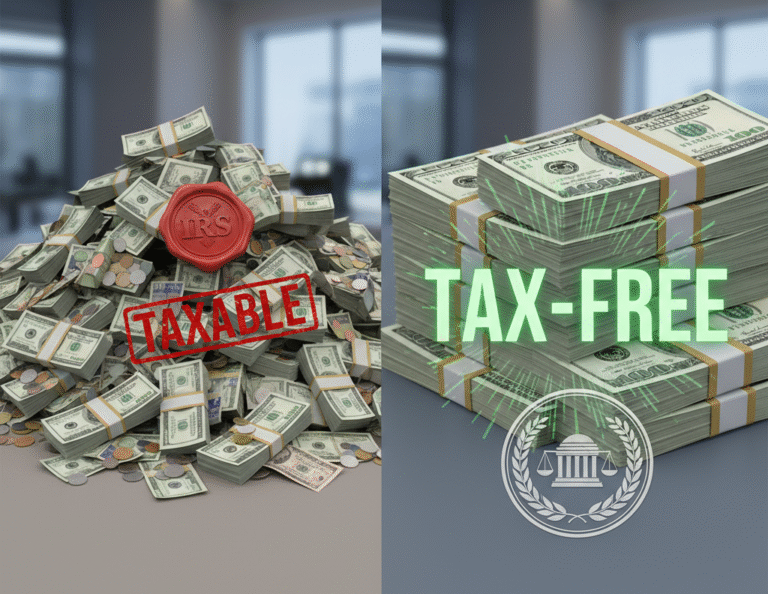Taxes are one of the most common concerns for people receiving structured settlements. The good news is that in most cases, structured settlement payments are tax-free under U.S. law. However, there are exceptions, especially when payments are sold for lump sums or when interest income is involved. Understanding the IRS rules can help you avoid costly mistakes.

IRS Rules on Structured Settlements
According to the Internal Revenue Code, structured settlements stemming from personal injury or wrongful death claims are tax-exempt. This means recipients don’t have to report these payments as income. The law was designed to protect victims and provide long-term financial stability.
Tax-Free Payments: Personal Injury & Wrongful Death
If your settlement was awarded due to personal injury or wrongful death, your payments are typically exempt from federal and state taxes. This makes structured settlements an attractive option for long-term security.
When Taxes May Apply
Taxes can apply in certain cases:
– Selling Payments – If you sell your structured settlement, the lump sum may be taxed.
– Interest or Investment Income – Additional earnings from investing payments may be taxable.
– Punitive Damages – Payments categorized as punitive are usually taxable.
Lump Sum vs. Structured Payments (Tax Implications)
Lump sum settlements are often subject to higher taxes compared to structured settlements. Structured settlements provide a tax advantage by spreading payments over time, often resulting in lower overall liability.
Legal Considerations Before Selling
Court approval is required for selling structured settlements. Judges often review whether the sale is in the seller’s best interest, including potential tax consequences. Consulting a tax advisor is essential before making a decision.
Structured settlement payments are usually tax-free, but exceptions exist. Whether you’re considering selling your payments or simply planning your financial future, understanding IRS rules ensures you remain compliant and maximize your benefits.




